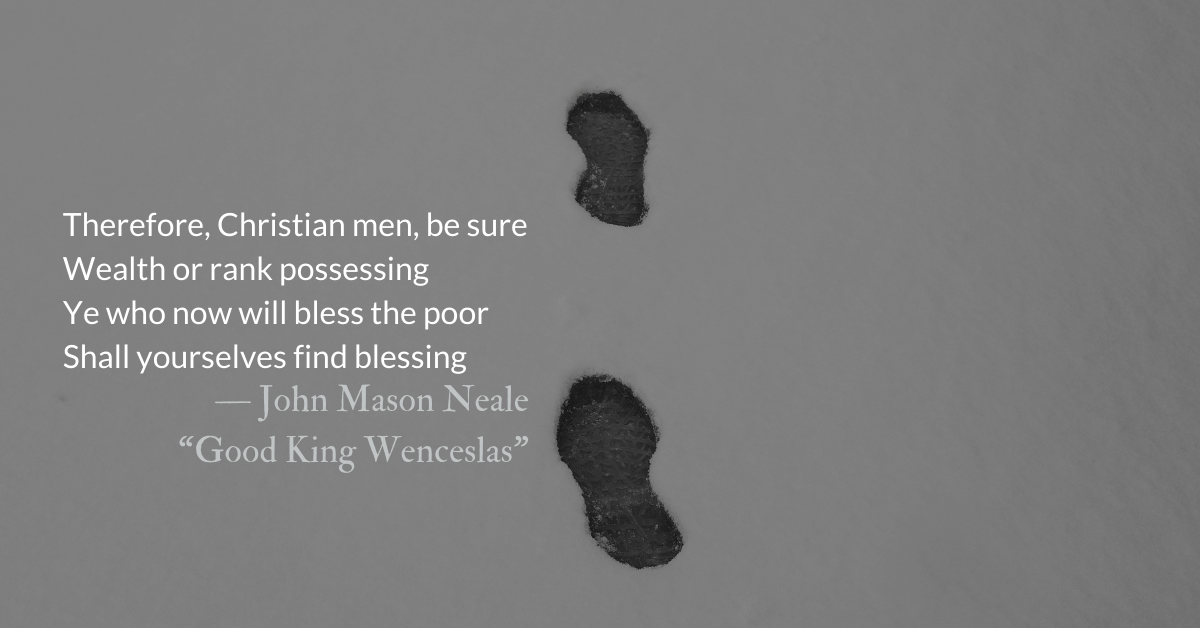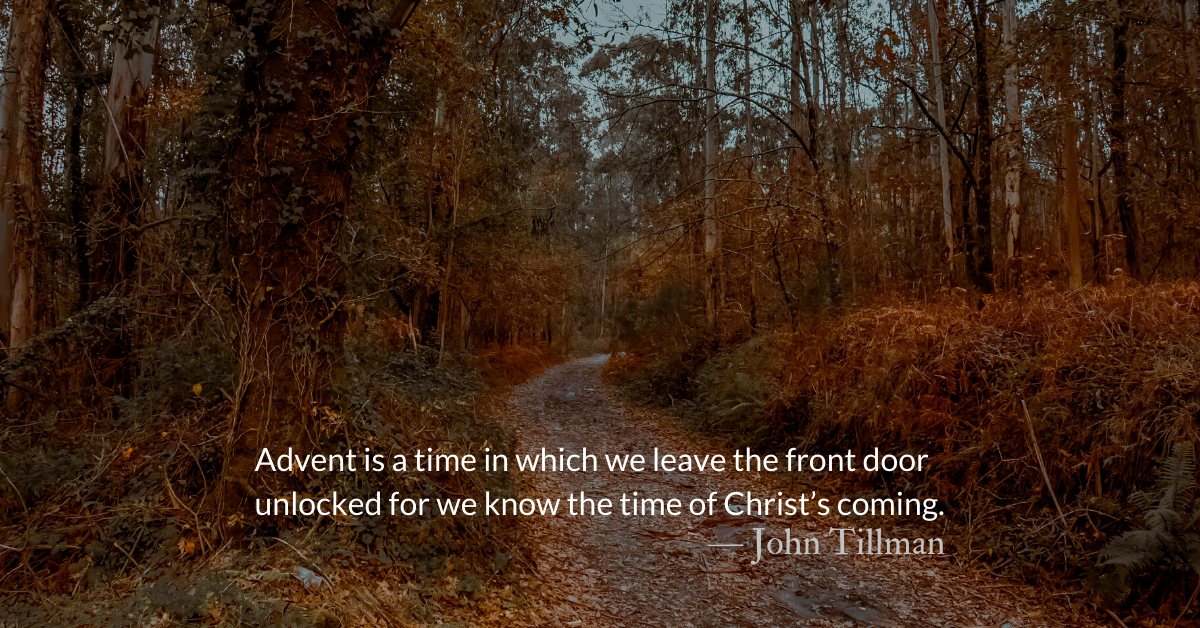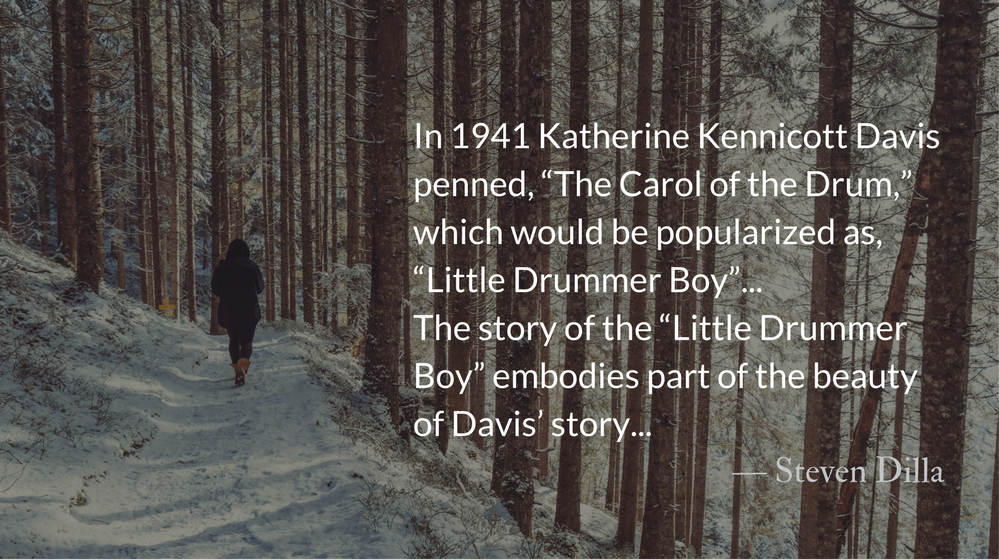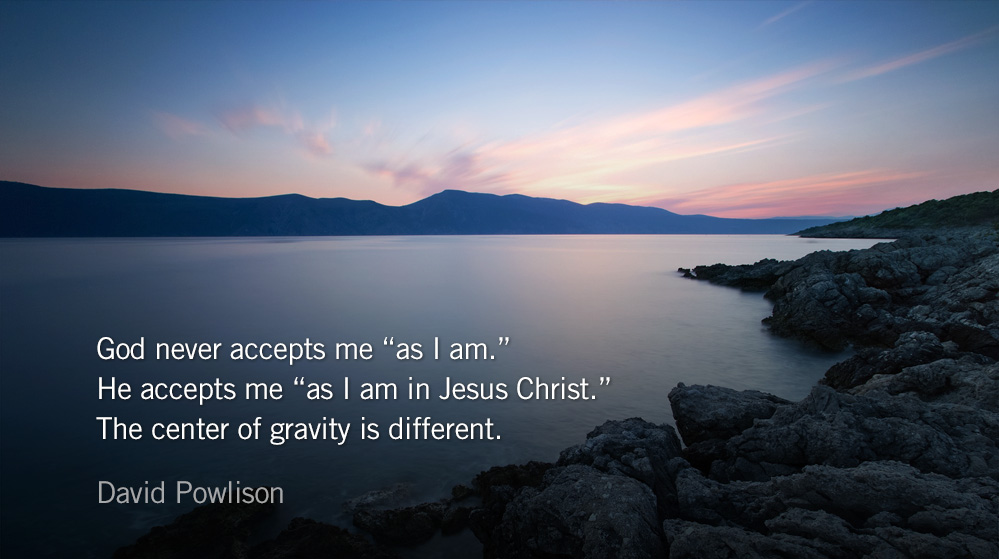Scripture Focus: 3 John 5-8
5 Dear friend, you are faithful in what you are doing for the brothers and sisters, even though they are strangers to you. 6 They have told the church about your love. Please send them on their way in a manner that honors God. 7 It was for the sake of the Name that they went out, receiving no help from the pagans. 8 We ought therefore to show hospitality to such people so that we may work together for the truth.
Reflection: Truth and Love — Love of Advent
By John Tillman
The love we receive and the truth we believe, are to be passed on.
John’s third epistle is to a leader and friend, named Gaius. Gaius is faithful to the truth and faithful in showing love. John testifies that joy comes from the people of God walking in love and truth in this way. Truth and love go together. We cannot let go of love to hold up truth or let the truth be hidden as we lift up love. Both are needed and they are not in conflict.
This weekend, as we move into the 3rd week of Advent, let us pray that, like Gaius, we would pass on the love we receive. It is from this passing of love, this sharing of love, this walking in love that joy comes.
Prayer for Truth and Love
Let us pass on what you have given to us.
Jesus, you came so we could become like you.
You took our sins, so we could take your righteousness.
You entered our darkness so we could enter your light.
You became poor so we could become rich.
You came, in love, to show us the truth.
You testified, in truth, that God is love.
You gave us a simple command: follow me.
Let us follow you in sowing with tears so that we may join you in reaping with joy.
Let what you have given us be planted in us and take root.
May the stalk emerge and the fruit ripen.
May the seeds of hope, love, joy, and peace be spread with abandon to all around us.
May we share in the nourishment of your bread and water of life.
Make us instruments of your peace.
Make us prophets of your hope.
Make us singers of your love.
Make us founts of your joy.
In each season of the year, let us share in hospitality, the bounty you give us.
Let truth and love be served in equal portions and in plentiful amounts.
Divine Hours Prayer: The Call to Prayer
Know this: the Lord himself is God; he himself has made us, and we are his; we are his people and the sheep of his pasture. — Psalm 100.2
Today’s Readings
Ezra 1 (Listen 2:03)
3 John (Listen 1:51)
This Weekend’s Readings
Ezra 2 (Listen 5:25) Revelation 1 (Listen 3:43)
Ezra 3 (Listen 3:01) Revelation 2 (Listen 3:43)
Read more about Supporting Our Work
Support ad-free biblical content throughout the year. About 50% of our support is monthly donations and 50% end of year. Consider joining one of these groups.
Read more about Tension in God’s Presence
We are sure of God’s love for us in Christ…So, let us live in a way that assures others of God’s love.











